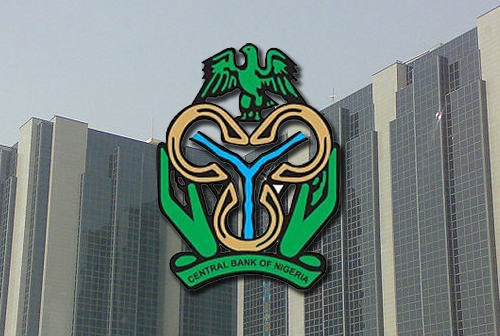
Nigerian regulators shook up the corporate environment considerably last week when they slammed a combined N5.87 billion fine on four banks and ordered MTN Nigeria to repatriate $8.1 billion that it improperly transferred abroad. The action has brought to the front burner issues of corporate governance, institutional regulation, corporate rascality, due process and foreign investment. Authorities should handle this episode with fairness and strictly in accordance with the laws.
Already, the affected institutions are contesting the sanctions while the Central Bank of Nigeria that imposed them is sticking to its guns, debiting the accounts of the banks promptly. At stake for the regulators is their independence and capacity to enforce their writ and ensure compliance with the rules; for MTN and the deposit money banks, reputation and corporate survival are on the line.
According to the CBN, MTN and four banks – Standard Chartered Bank, Citi Bank, Stanbic IBTC Bank and Diamond Bank – deliberately flouted the “laws and regulations…including the Foreign Exchange (Monitoring and Miscellaneous Provisions) Act, 1995 and the Foreign Exchange Manual, 2006.” The banks allegedly colluded with MTN, using irregular Certificates of Capital Importation with which they illegally remitted foreign exchange abroad.
Further elaboration by the CBN Governor, Godwin Emefiele, and robust push-back by the sanctioned firms, place a high burden of transparency and firmness on regulators. He will need to prove in the days ahead that the 30-month-long enquiry that led to the sanctions was thorough enough to sustain possible prosecution. To the MTN’s argument that it had already been cleared by a Senate panel, Emefiele explained that the CBN actually pardoned it and the banks on some earlier irregular transactions, which informed the Senate’s clearance; “Now the third offence, which is actually the crux of the matter in dispute, relates to the unauthorised conversion of a loan of $399 million to Preference Shares by the MTN and the banks and, thereafter, the repatriation of the sum of $8.1 billion without final CBN approval.” The CBN has ordered MTN to recover and refund this amount to its coffers. It also imposed fines ranging between N250 million and N2.47 billion on the four banks. Significantly, the CBN says it will, on receipt of the $8.1 billion, remit the naira equivalent, using the prevailing exchange rate at the time of the illegal transfers, to MTN Nigeria.
To this, the firms insist that they did obtain all necessary approvals and were not in breach of the laws and regulations as alleged. MTN is also questioning the propriety of the Office of the Attorney-General of the Federation asking it to repay $2 billion in tax arrears when none of the revenue collecting agencies made such accusations.
The CBN and the AGF have to clear the fog in the public interest. No individual or corporate entity should break the law and go unpunished. Regulators too should strictly follow due process. Curious complaints that the sanctions are “scaring away investors” should be dispensed with by a combination of thorough investigations, professional presentation of the facts and total absence of even a whiff of political interference. Effective and impartial regulation actually attracts, not discourages, foreign investors.
Similar sanctions on them in other jurisdictions are often contested by banks and telecommunications operators: at the end, justice prevails when the regulators are independent, fair and firm, with the interest of the state paramount and the rule of law adhered to. In the United Kingdom, regulators settled for £218 million and £382 million on Lloyds Bank and Tesco Bank respectively for financial misdeeds after some protracted dispute resolution activities, following initial findings against the banks. Google is still contesting the record $5 billion imposed on it in 2016 by the European Commission for abuse of its Android device.
Nigerian government needs to be more serious about taxation and institution building. When tax becomes the major source of its revenue, rather than oil sales receipts, it will tighten and rigorously apply the rules. Regulatory agencies should be independent, and transparently so; crime should be followed by swift punishment with no room for preferential treatment such as the dropping of charges against Siemens for dodgy transactions in Nigeria and award of new contracts to it after the then president, the late Umaru Yar’ Adua, met with his German counterpart some years ago.
Nigeria should not be an ungoverned territory for business operators. MTN has only paid over half of the N330 billion imposed on it in 2016 after it flouted regulations and issued a staggering 5.2 million unregistered SIM cards. Its initial $5.2 billion fine was later reduced to $1.7 billion after negotiations and a commitment to list on the Nigerian Stock Exchange.
The CBN will need to work hard to dispel fears that the clampdown on the South African multinational, MTN, Africa’s biggest telco with operations in 22 countries, as well as indictment of Standard Chartered and Stanbic IBTC, also of South African parentage, as well as the Nigerian subsidiary of Citi Bank, could frighten foreign investors. Strong, impartial regulation does not; as seen in Singapore, China and Hong Kong that attracted $58 billion, $144 billion and $85 billion respectively in foreign direct investment in 2017, according to UNCTAD’s Investment Trends Monitor, despite their low tolerance and harsh penalties for corporate misbehaviour. Rwanda, which also fined MTN Rwanda $8.5 million in 2017 for breaching licensing terms, still attracted $1.01 billion FDI that year as investors are lured by its emerging liberalising and strong regulatory environment.
MTN and the four banks have to come clean: regulators should ensure this while the firms should explore all available legal options if they insist on their innocence. Nigerian authorities should henceforth resolve to ensure compliance with all laws and regulations by corporate operators. The CBN and other regulators should undertake reforms that would equip them to effectively monitor, guide and penalise where necessary in a transparent template.
END

Be the first to comment